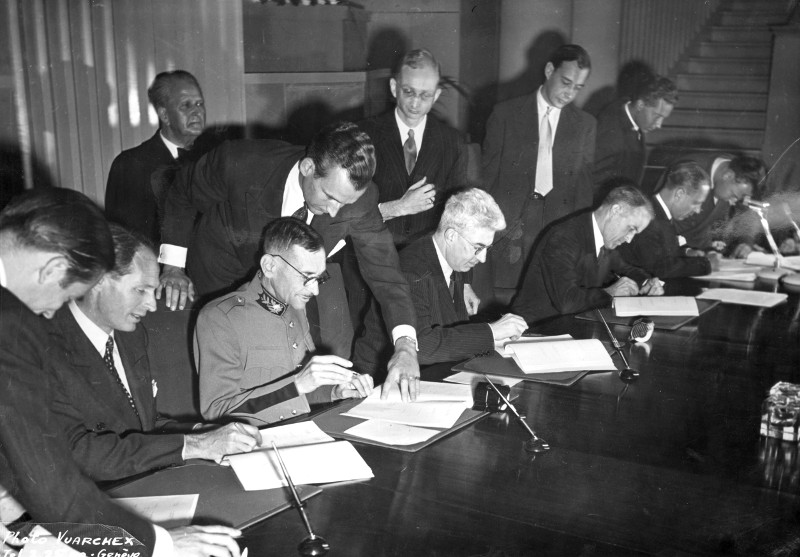
International Law, Morality, and Conflict Resolution in War

The dynamic interplay between international law, morality, and conflict resolution in war has been a subject of intense debate among scholars, policymakers, and military leaders. As armed conflicts continue to shape global relations, the importance of establishing legal frameworks that accommodate moral considerations becomes imperative. War, as a multifaceted phenomenon, not only impacts the political landscape but also challenges the ethical boundaries delineated by established international laws. This article explores the complexities surrounding the concept of a just war, illustrating how morality intertwines with legal standards in the context of conflict resolution.
Understanding war and order necessitates a comprehensive examination of historical and contemporary perspectives on the legitimacy of military action. The concept of a just war encompasses the conditions under which armed force can be justified and the ethical frameworks that govern conduct during conflict. As global norms evolve, the questions of state sovereignty and human rights accountability have prompted a re-evaluation of traditional views on warfare. This article delves into the evolution of international law as it pertains to warfare, highlighting key historical developments, influential thinkers, and the enduring challenges of aligning morality with established legal principles.
The Concept of Just War: Historical Foundations
The concept of just war has roots that extend back to ancient philosophy and theology, forming a critical part of discussions surrounding the legitimacy of military action. During the Middle Ages, the blend of religious and secular influences helped to shape the tenets of this concept. Early thinkers such as St. Augustine articulated the necessity for a moral framework that justified military engagement only under specific conditions, emphasizing the distinction between spiritual and earthly duties. This foundational ethos posited that war must be waged with the intention of promoting peace and justice.
St. Thomas Aquinas further refined the principles of a just war, crystallizing the criteria of jus ad bellum (the right to go to war) and jus in bello (the right conduct in war). He outlined key factors such as just cause, legitimate authority, and right intention, laying the groundwork for the ethical considerations that would permeate subsequent discourse on warfare. Influential thinkers like Hugo Grotius later contributed to these ideas, utilizing concepts from Roman law to advocate for the establishment of binding legal standards governing warfare in light of moral imperatives.
Key Thinkers and Their Contributions
The evolution of the just war theory has been significantly bolstered by the contributions of various philosophers and jurists over centuries. Figures such as St. Augustine emphasized that warfare, while inherently violent, could be justified under strict conditions aimed at achieving peace. His thoughts paved the way for future developments in the field of international law, particularly concerning the ethical obligations of states during times of conflict.
Building on Augustine’s principles, St. Thomas Aquinas further elaborated on the criteria for engaging in war. He insisted that such actions must be approved by proper authority, such as sovereign rulers, and must aim at restoring justice. Hugo Grotius, often regarded as the father of modern international law, introduced concepts of natural rights and the inherent dignity of human beings, advocating for regulations that would lessen the brutality of war and ensure humane treatment of both combatants and non-combatants.
The Evolution of International Law in Warfare
The establishment of international laws governing warfare has been a progressive journey influenced by moral considerations and the need for clarity in armed conflict. The Peace of Westphalia in 1648 marked a turning point, signifying the emergence of a modern state system and the development of legal norms aimed at regulating state behavior during war. Subsequent treaties and conventions, including the Hague Conventions, sought to codify the rules of engagement and establish accountability for violations of these norms.
As the 20th century unfolded, the horrors of the two World Wars necessitated a more robust legal framework, culminating in the adoption of the Geneva Conventions. These treaties not only regulated the treatment of the wounded and prisoners but also established prohibitions against targeting civilians. The significance of these conventions cannot be overstated, as they represent a commitment by the international community to curtail the ferocity of war through legal means.
The Geneva Conventions and Their Significance
The Geneva Conventions are a cornerstone of international humanitarian law and illustrate the convergence of legality and morality in wartime conduct. Comprising four distinct treaties, the Conventions outline responsibilities and protections for those not engaged in combat and reinforce the principle that “the means of warfare are not unlimited.” These treaties establish a critical ethos in warandorder discussions, urging combatants to adhere to humane and ethical standards during armed conflicts.
The significance of the Geneva Conventions extends beyond mere regulatory frameworks; they symbolize a global consensus on the moral imperatives governing war. The principles embedded within these treaties advocate for the protection of human dignity, even amidst the chaos of conflict. The universal ratification of these conventions underscores a collective commitment to mitigate the suffering associated with war and holds perpetrators accountable for violations, representing a profound intersection of law and morality.
Post-Cold War Interventions: A Shift in Perspective
In the aftermath of the Cold War, the geopolitical landscape shifted dramatically, influencing the discourse on humanitarian interventions and the responsibilities of states to act against human rights abuses. The rise of new security challenges and the recognition of moral imperatives led to a reevaluation of the traditional notions of state sovereignty. Interventions in places like Bosnia, Kosovo, and Rwanda triggered intense debates about the legitimacy of military action when aimed at preventing genocide or gross human rights violations.
This post-Cold War paradigm has catalyzed discussions surrounding the concept of the Responsibility to Protect (R2P), which posits that states have a responsibility to protect their populations from atrocities. The evolution of this doctrine illustrates a significant tension within the framework of international law, as it challenges the sanctity of sovereignty in favor of prioritizing human rights above state interests. The implications of such a shift ignite debates on what constitutes a just cause for intervention and raise questions about the legal and moral accountability of states acting unilaterally.
State Sovereignty vs. Human Rights Accountability
The dichotomy of state sovereignty and human rights accountability emerges as a major contention in discussions surrounding military interventions. Traditionally, the principle of sovereignty has shielded states from external intervention, jealously guarding their rights to govern without outside interference. However, as the global community grapples with increasing instances of systemic violence and oppression, the call for accountability has become increasingly compelling.
The challenge lies in reconciling these two principles. While international law affirms state sovereignty, there is an emerging consensus that such sovereignty carries with it obligations to uphold the rights and welfare of its citizens. This tension is palpable in debates over humanitarian interventions, where the moral imperative to act in defense of human rights collides with the legal norms that protect state autonomy. The quest for a balance between respect for sovereignty and the ethical obligation to prevent atrocities remains a contentious and unresolved issue.
The Elusive Consensus in Moral Justifications for War
Attempts to forge a consensus on the moral justifications for war have revealed significant complexities, as various ethical frameworks often yield conflicting conclusions. The challenge stems from differing cultural, political, and philosophical perspectives that shape how societies interpret the morality of military action. While some argue that justifications for war should be grounded in a clear moral framework aimed at safeguarding humanitarian values, others contend that state security and political pragmatism should take precedence.
As a result, international debate tends to oscillate between a range of positions, from pacifism to unqualified support for military action in the name of justice. The just war theory itself is not monolithic; its application may differ significantly based on the context and the parties involved. This lack of consensus over what constitutes a just cause, the acceptable methods of warfare, and the responsibilities owed to civilians and combatants alike complicates the pathway to resolving conflicts through both legal and moral lenses.
The intricate relationship between international law, morality, and conflict resolution in war exemplifies the ongoing struggle to find equilibrium between legalistic constraints and ethical imperatives. As history has shown, wars inevitably test the limits of established laws and challenge moral perceptions, leading to evolving interpretations of what constitutes rightful action. The concept of a just war emerges as a pivotal framework for navigating these complexities, encouraging discussions that seek to align legal standards with ethical considerations.
In an increasingly interconnected world, the questions surrounding war and order will continue to provoke debate and demand attention. As states grapple with the dual imperatives of upholding sovereignty while ensuring accountability for human rights abuses, the dialogue surrounding the legitimacy of military interventions will remain essential. Ultimately, the endeavor to reconcile law and morality in the context of war is not merely an intellectual exercise but a vital pursuit aiming to mitigate the human costs of conflict and uphold the principles of justice and human dignity.
Did you find this article helpful? International Law, Morality, and Conflict Resolution in War See more here Education.
Leave a Reply






Related posts